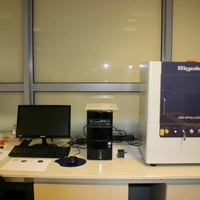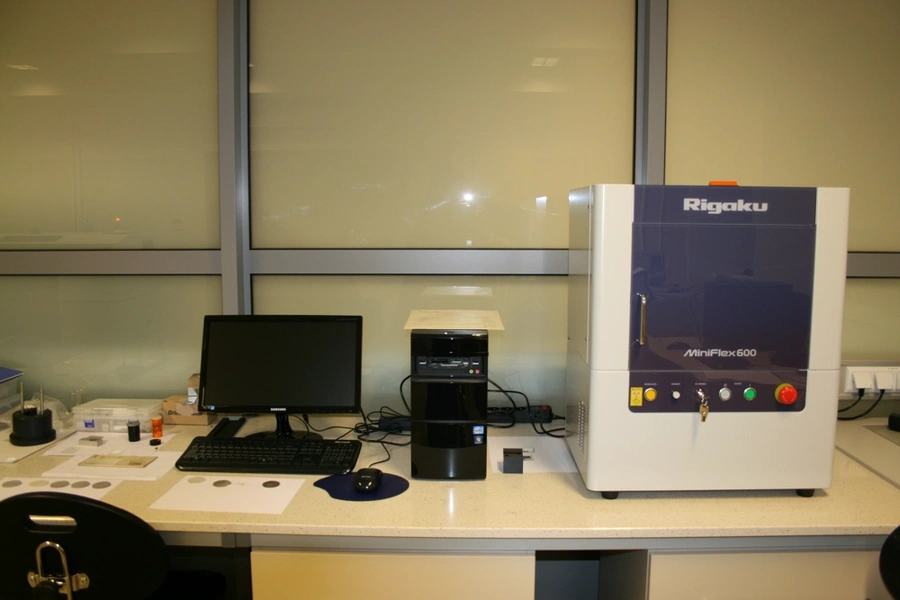Dyfraktometr rentgenowski MiniFlex 600
Dyfraktometr rentgenowski proszkowy Rigaku MiniFlex 600 z anodą Cu o mocy 600W.
Aparat, typu biurkowego, jest wyposażony w goniometr typu theta-2theta
Parametry techniczne:
- maksymalna użyteczna moc lampy rentgenowskiej - 600W
- maksymalne napięcie lampy – 40kV
- maksymalny prąd lampy – 15mA
- optyka typu Bragg-Brentano
- zakres pomiarowy – 0,5÷156º 2Ɵ
Wyposażenie:
- detektor scyntylacyjny SC
- monochromator grafitowy, ze zgiętym kryształem, dla promieniowania CuKα
- automatyczna szczelina dywergencyjna
- automatyczny zmieniacz próbek
- uchwyt specjalny do preparatów próbek ilastych
- zgodnie z regulaminem zamieszczonym na stronie laboratorium: http://wydzlab.agh.edu.pl/wp-content/uploads/2020/11/Regulamin-WLBFSTiG.pdf
- współpraca naukowo-badawcza z jednostkami AGH i innymi krajowymi i zagranicznymi jednostkami naukowymi
- współpraca w ramach projektów NCN, NCBiR i w ramach umów z przemysłem
- jakościowa i ilościowa analiza próbek stałych
- analiza minerałów ilastych o strukturze mieszanopakietowej
- wyznaczanie wielkości krystalitów, wskaźników uporządkowania struktury, wielkości parametrów sieciowych, wielkości współczynników absorpcji masowej metodą bezpośrednią
- identyfikacja słabo krystalicznych minerałów metodą DXRD
- udokładnianie struktury faz krystalicznych
- Rejestracja rentgenogramów preparatów próbek:
- proszkowych wykonanych metodami ładowania: od góry, od tyłu, z boku
- litych płaskich, zawiesin cieczowych o różnej gęstości, cieczy
- Rejestracja rentgenogramów preparatów próbek:
- w trybie krokowym i ciągłym
- nasyconych różnego rodzaju cieczami


Jednostka odpowiedzialna
Grupa / laboratorium / zespół
Wydziałowe Laboratorium Badań Fazowych, Strukturalnych, Teksturalnych i Geochemicznych